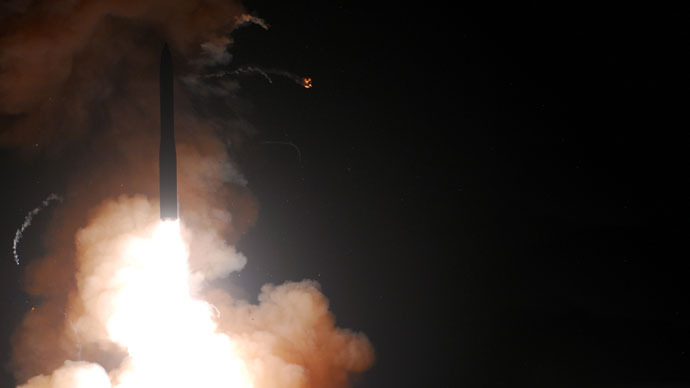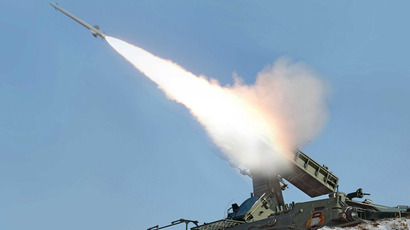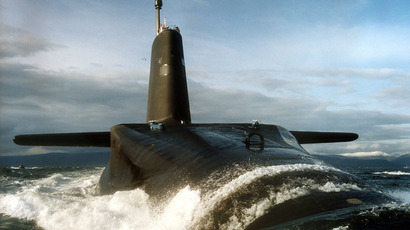US delays intercontinental missile test over N. Korea tensions

The Pentagon has put on hold an intercontinental ballistic missile test in California, planned for next week, citing rising tensions with North Korea.
According to an official, speaking to AP on condition of anonymity, Defense Secretary Chuck Hagel has expressed concern that performing any tests at present could be misconstrued and lead to an escalation of the situation with North Korea. He therefore, decided to postpone the 'Minuteman 3' missile test until next month, the official said on Friday – although the test itself bears no connection to the ongoing military exercises between South Korea and the US around the Korean Peninsula.
The defense official added that "this is the logical, prudent and responsible course of action to take."
The 450 'Minuteman 3' missiles America has can circle the globe, and are part of the three branches of the US nuclear arsenal. Other such weapons include submarine-launched ballistic missiles and those capable of being launched by bombers and stealth bombers, like the B-52 and the B-2.
Some of the latest developments in the current escalation of war rhetoric between the United States and North Korea have included Pyongyang declaring that it now has final approval for a nuclear strike on US bases in the Pacific and South Korea. The announcement earlier this week came on the heels of the US deploying its F-22 fighter jets, a ‘USS Fitzgerald’ destroyer, and strengthening its missile defenses in the region.
In the meantime, North Korea has sent out a proposal to all foreign embassies on its territory to evacuate, although, so far no embassy has done so.

“The security of the German embassy and its exposure to danger are continually being evaluated,” the German Foreign Ministry said in a statement. “For now, the embassy can continue working.”
Currently, about two dozen countries have embassies in North Korea. Most of the represented governments have already made it clear they had no immediate plans to withdraw personnel; some suggested the advisory was just a ruse to fuel growing global anxiety over the current crisis on the Korean Peninsula.
British Foreign Secretary William Hague on Sunday said there are no signs of repositioning of the North Korean armed forces, despite its government’s “paranoid rhetoric,” and there is no real need to recall diplomatic staff.
“It’s important to keep calm as well as to be firm and united about this,” Hague stressed.
However, there was still some “danger of miscalculation by the North Korean regime which has worked itself up into this frenetic state of rhetoric in recent weeks,” he added, saying that the UK and its international allies will keep the situation “under close review.”
Tensions are now higher than they have been at any moment during this latest standoff, which followed Pyongyang’s third mid-range missile test in February, provoking international condemnation and a fresh round of UN Security Council sanctions, to which Pyongyang has replied with the threat of a nuclear strike on the US.
Last week, Pyongyang declared it had entered a state of war with its southern neighbor, following an earlier decision to withdrawal from the 60-year armistice that ended the Korean War. North Korea had previously threatened to pull out of the 1953 armistice if the South did not halt a joint annual military exercise with the US.
Despite the worrying rhetoric and the displays of military power between the two countries, Washington says it has no evidence of North Korea engaging in any kind of mobilization effort for a large-scale attack.















